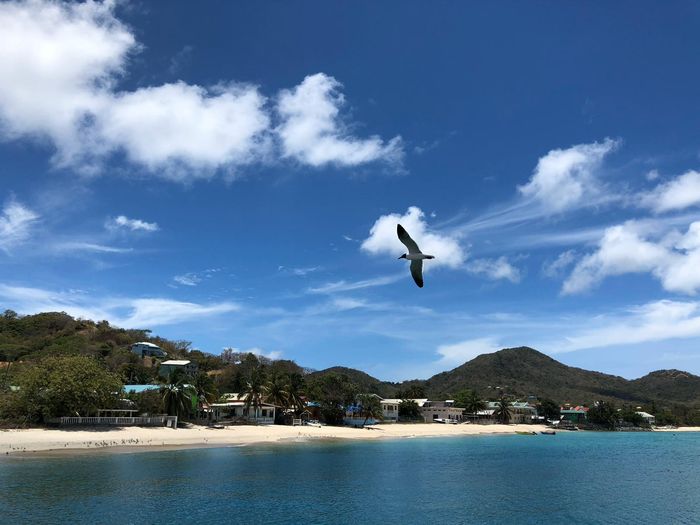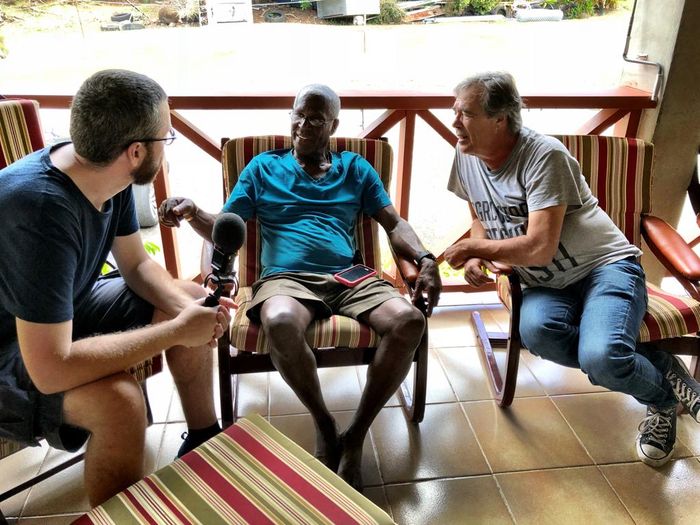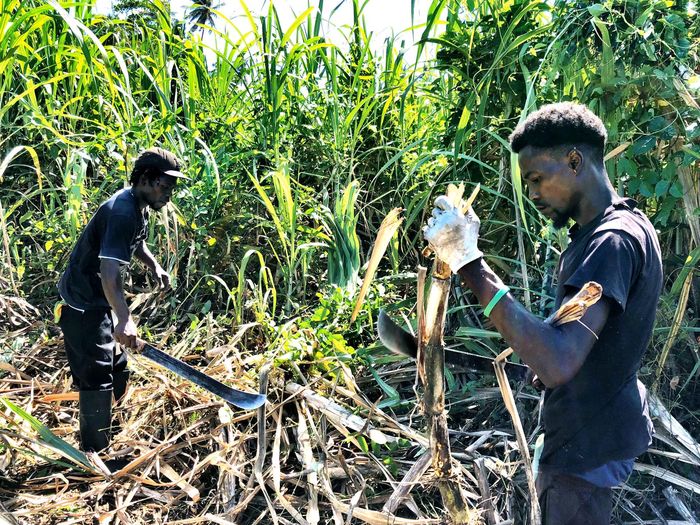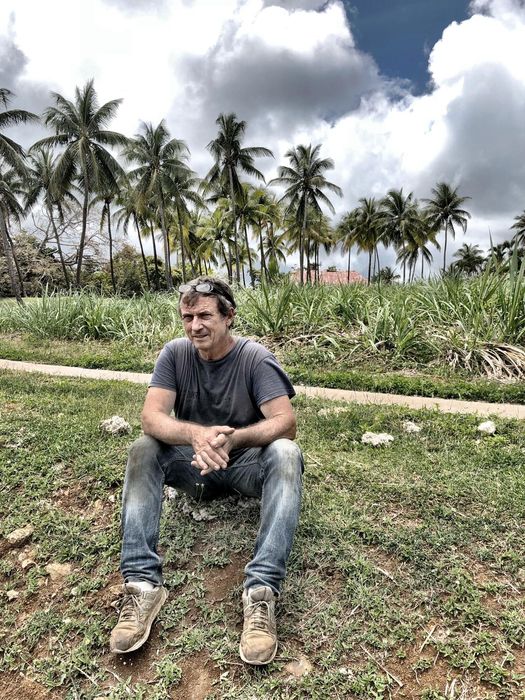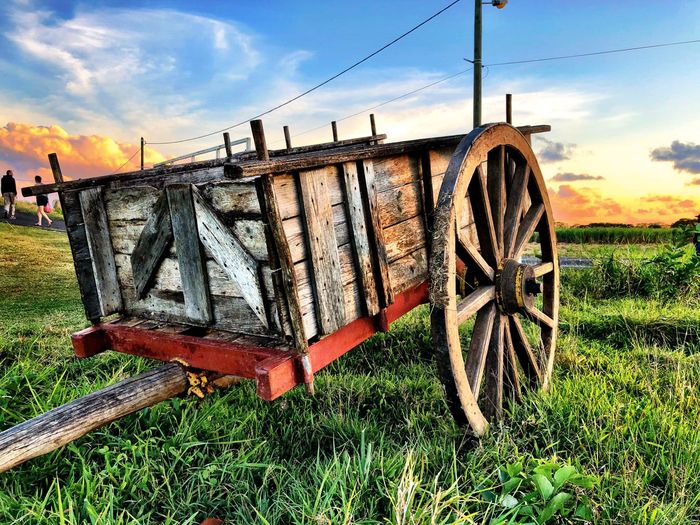
Since the announcement of the book project “The Silencers – Rum and Men”At the beginning of 2019, the little rum planet was impatient to finally be able to read this book. Our rum culture has been considerably enriched in recent years, as has our historical and technical knowledge. The debates and gossip are all soap operas that we follow on social networks, always eager for novelty and exception. But wouldn't all this tend to distance us from the primary reasons that made us love rum?
What makes rum so unique is that little "je ne sais quoi" that transmits a fragment of age-old tradition, that touches the heart and transports. It is no coincidence that rum has that little something that makes it a conductor of emotions. This is how we recognize a real rum: when the current passes as if by magic from Man to Man, from the cane cutter to the one who tastes.
The promise (kept) of this book is to give a voice to the people who make and have made rum, without fuss, to transmit the love of this very special brandy.
Cyril Weglarz is this passionate amateur who brings the blog to life durhum.com. He shared his magical discoveries and disappointments with his readers, and subsequently went on to defend authentic rum, even if it meant raising some delicate questions. In this book, he refocuses the debates and takes us to meet modest characters and great personalities, all indispensable guardians of tradition.
Fredi Marcarini, an Italian professional photographer, is not new to this adventure. Over the course of his reports around the world, he has gradually specialized in portraits. Rum lovers know him well, perhaps without knowing it, since he has illustrated all the Caroni bottled by VelierIn this work, he offers powerful portraits and phantasmagorical landscapes, witnesses to a real dive into the heart of rum and people.
Cyril and Fredi have agreed to answer a few questions about this book that we warmly invite you to read. Many thanks to them.
How did you choose the actors for this book? Through meetings? Or did you have people in mind before starting the project?
Cyril : At the beginning of Les Silencieux, there was a list of a few names that grew as this project developed. For the rest, I only had a precise idea of the professions that I wanted to highlight (cane cutter, carter, smuggler, etc.) and certain destinations, but without knowing yet who to contact, and especially if it would come to fruition. In the end, there were quite a few accidents, chance and almost unexpected encounters. Some characters came to graft themselves naturally, in the moment and during the trips.
How exactly can we get these silent people to talk? Were they surprised by the approach? Did they all accept immediately?
C : Meeting people is often enough to create a bond; the rest is probably just a matter of sharing and listening. Everything happened naturally and I am still very surprised by the extreme ease with which I managed to collect all these confidences and slices of life. I have often arrived in unfamiliar territory and seen only kindness; there was no surprise or hesitation in the end.
Similarly, I imagine it wasn't always easy to get them to pose?
Fredi : For me it's a matter of habit, it's part of my job to meet strangers and take their picture after two minutes.
C : Here too, everything was done in a fairly natural and spontaneous way, taking into account each person's environment. Fredi knew exactly what I was looking for and it could be summed up in a few words: to capture a moment of life, without embellishment. To show the reality of each silent person, without disguise. And we can say that he succeeded perfectly.
F : Most of the people we met were very natural people, so it was very easy to photograph them. It was done between conversations, in a very spontaneous way.
The photographic work is very personal, are the atmospheric images taken “on the fly” or was preparation necessary?
F : No preparation, no. Each time, as soon as we arrived, I looked for two or three angles that could adapt to the situation and I positioned the character accordingly; at the limit, I can move something that is out of context, but these are only small details. Everything happens in the moment, in a few seconds. Sometimes, while Cyril was doing the interviews, I would walk around where we were to find another interesting angle, before taking other photos once the interview was over.
Are you a rum lover, Fredi?
F : I am not a big drinker in general. Sometimes I drink a little during tastings, usually on professional occasions. I only drink rum, or wine. At home, I have a few very special bottles that I sometimes rediscover with great pleasure. My favorites are Caroni, Hampden, Neisson, Port Dying And Santa Teresa.
Do you have the feeling that these people, and in particular the “little hands”, realise the scope of their work all over the world, and more particularly in Europe?
C : They all have in common the awareness of the importance of their work, which they take enormous pride in; but many often do not seek to see further because they simply have no interest in doing so, or even the possibility in some cases. It is more a pride in being able to earn a living, to be able to pay their bills, while finding meaning in what they do. Characters like Ricky Victor or even Bill Paterson, whose activities could be summed up as smuggling, gravitate around a market so tiny that they inevitably remain locked in their own worlds. That is the beauty of these meetings, moreover, discovering very different worlds, but which converge towards the same destiny and which have, in the end, much more in common than one might think.
Many of these silent ones worked at a time when rum was struggling, far from the revival of the last ten years. Have they felt this revival in their current lives?
C : If by renewal we mean more work, then yes many have been able to feel it if only with the sustainability of their jobs, but also - and above all - that of the traditions, dear to each of them. Of course, the situations and perceptions will be quite different whether we are in Martinique , Haiti or Grenada , but maintaining traditions remains a common quest and a true priesthood for all these characters. Their renewal is the continuity of their activity, and therefore of traditions.
I can't help but feel a certain nostalgia when reading the oldest of the Silent Ones, will the memory be well preserved?
C : This is just my opinion, but I think we are witnessing a real memory loss, in the world of rum as elsewhere. The world is moving fast and forgetting its ancestors, traditions... knowledge is being lost because it is often considered unproductive and incompatible with today's ideals, even shameful in some cases. However, we would all like to be able to remember, but memory, today, is largely reduced to marketing. You only have to see the number of brands that exist, or who owns this or that distillery to understand the issues: we sell folklore without really being interested in people and their importance. Fortunately, some are trying - and succeeding - in a real work of memory. Others don't care about the past, some even invent a story from scratch to seek credibility...
Was the title “The Silencers” also chosen in opposition to the noise of marketing?
C : Unconsciously, probably. The bet was above all to talk about 'active' people who carry values and who deeply respect rum for what it is and what it conveys. Also because books on rum never dwell on those who are at the origin, except for the pioneers who can be counted on the fingers of one hand. A shame when you think about it. Hence the term Silencieux, as if to lift part of the mystery and give a voice to a handful of actors in the shadows.
At the beginning of my reflections, I had chosen the title "Les Artisans du Rhum"; a simple title, which turned out to be much too simple considering the trust that each person had given me. Fredi gave me very good advice and quickly advised me against/discouraged me from keeping the idea, too consensual and understood, too down to earth. The same goes for the cover: it would have been too easy to put an image of a barrel, a bottle or a stemmed glass... We wanted to reflect the silence that unfairly weighs on these people, yet so important and essential. It is probably not the best choice in terms of "marketing" but we went through with our idea and that's all that matters.
Reading the confessions of some “old hands” gives rise to a certain jubilation. Do you think that “old hands” speak more freely?
C : With the strength of age, they probably allow themselves more freedom of speech, yes! And yet, they must keep some good ones up their sleeve, and as many secrets that could make this little world tremble.
Family and returning to roots seem to be the central themes, am I right?
C : That's exactly it, it's all a question of roots. There are many differences between all these men and women, both professionally and personally, and even environmentally. But despite these sometimes polar opposite paths, they are all connected by the same values, by a perpetual and almost unhealthy return to their roots. All of them have been able to evolve while respecting their traditions, without ever forgetting them, sometimes still adapting them to get the best out of them. It may seem universal when said like that, but it is a position (and risk) that is increasingly rare today, and that should be shared (and not forgotten...).
From a personal point of view, have these trips changed anything in your vision of rum?
C : I would be lying if I said otherwise. I may put things into perspective more, and I have come to respect even more the work of all these people we don't talk about and who, however, are at the origin of what we drink, comfortably installed in our daily lives. The other side of the coin/consequently, I hate even more the manipulations and marketing subterfuges that do not reflect reality and/or that misuse it. And unfortunately there is no shortage of them.
What is babash like? (smuggled rum from the island of Grenada )
C : Up to the discovery: surprising and galvanizing. Taste-wise, the result would knock a lot of molasses rums out of the water, clearly. But on a technical level, its production method is so rootsy that it probably couldn't be done anywhere else... And when you think that you can find contraband rums made from pure juice, it's a dream come true and it definitely gives you ideas.
This book is published by Velier . All images are by Fredi Marcarini .
